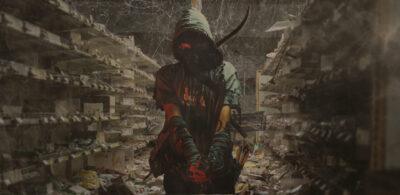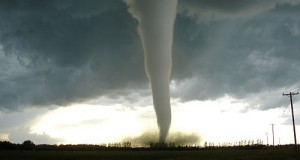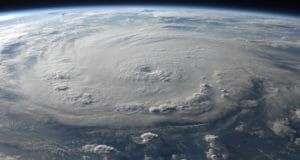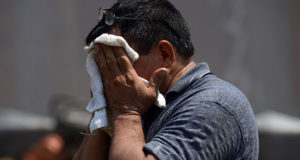|
Listen To The Article
|
As people who plan on surviving whatever disaster might come our way, we all tend to stockpile the food and other supplies we think we’ll need. This puts us way ahead of the rest of the country. But that doesn’t really guarantee we’ll have enough. No matter how much we have, there is always the possibility that our supplies will run out. This could happen long before things return to some semblance of the ordinary.
That’s why so many experienced preppers are adding gardening and other homesteading skills to their overall survival plans. If we assume that a TEOTWAWKI event can occur, at some point we’re going to have to become self-sufficient. Otherwise, we’re just not going to make it.
Yet, there’s another source of supply which I rarely hear discussed in prepper circles. That’s the idea of scavenging. This is a tricky one because of the morality associated with stealing property that legally belongs to others. Even so, it is something we should consider and be prepared to do. This is especially true if we are going to be a force to help put society back together again.
The Moral Issues
Let’s talk about the morality of scavenging for a minute. First of all and in my mind at least, there are significant, important differences between looting and scavenging. The first aspect revolves around active possession of the items. People who break into homes and stores to take what belongs to others in a time of crisis are clearly looters. So, there’s no doubt that they should be treated as such. However, people who are scavenging are taking things which the owner has apparently abandoned.
Herein lies a huge grey area that can cause us problems. If someone bugs out because their home is flooding, have they abandoned their property? I would say that we could only know that it is abandoned if we know that they are not coming back. There’s no real way to know this for certain though. What this means is that whether it’s looting or scavenging, it is largely in the eye of the beholder. We can only be sure that we are scavenging rather than looting if we are sure that the original owner is dead.
Of course, chances are very slim that we’ll have that knowledge. So, even in the best of circumstances, we’re going to have to do a gut check on our actions. We need to make sure that what we are doing passes the test of being moral and upright.
There’s another factor which I believe is important. That is, why are we taking what we’re taking? Let’s say we’re trying to get a big screen television because we’ve always wanted one. I really can’t see any way to call that scavenging; it’s simply looting. Nonetheless, if we’re looking for tools and equipment to put our community back together after a major disaster, we are not taking it for selfish purposes. Rather, we are doing so to help others. It could be argued in that case that we were taking it in the name of the people.
One last thing about morality. If you really want to be sure that you’re on the right side of this issue, then leave a note behind. This message should list who you are, what you took, and where they can find you. That way, there will at least be the possibility of making payment if the owner asks for it.
So Then, Why Scavenge?
When I think of scavenging, I’m not thinking of going into people’s homes to look for any canned food they left behind, even though that would qualify as scavenging. I’m thinking mostly about warehouses. Our country has warehouses dotted all across the land, filled with valuable goods. Some of these items could be considered essential for survival or even for rebuilding society.
Let’s use the example of a grid-down situation, either due to cyber attacks or an EMP attack. In that case, one of the big concerns is going to be getting the power grid restored. According to the estimates of the EMP Commission, somewhere between 60 to 90 percent of the population would die off in a situation like that. If the grid is ever restored, even on a local basis, it will obviously have to be done by the survivors.
Notwithstanding, those survivors are not likely to be the people who own the equipment necessary to rebuild the grid. Since it is unlikely that there will be any system of monetary exchange available, their only chance of getting that equipment will be scavenging it from the factories and warehouses that have it.
In that kind of scenario, it would probably be morally acceptable to scavenge the necessary parts and tools from whatever warehouses they are in. It would be better to try and make contact with the owners first. Nevertheless, if that proves impossible, then letting that warehouse sit there filled with useful equipment and supplies that could save lives is a moral issue on its own.
Preparing For A Time Of Scavenging
If we accept that the time may come when we would need to scavenge in the aftermath of some TEOTWAWKI event, then it only makes sense to prepare ourselves for this possibility. Having the necessary tools to get into places that we would be scavenging from is a part of this. But the more important part is knowledge. Specifically, we should know what warehouses, factories, and repair shops are in the area and what they have in them.
Most of us know only the warehouses, repair shops, or stores which have things we use in our work or which provide us with goods and services. So, if we don’t do plumbing, we’re not likely to know where a plumbing supply is. Unless, of course, we pass it all the time and see the stacks of pipe outside. Also, it’s not likely that we would know where an electrical supply is unless we are an electrician. However, these are the very types of businesses that we may need to scavenge from in order to play a part in restoring society.
The old paper phone books were a great resource for this, but how many of us still have those in our homes? Most of the people I know don’t bother and depend on the internet instead. Yet, if we assume that the power will be out, then they won’t be able to look those things up on the internet.
One option is to become more aware of these potential sources of supply as you are driving around and accomplishing your day-to-day activities. Start making yourself a map of your area, showing all potential sources of supply. After all, you may need to use these in the wake of a disaster. If you’re not sure whether you’ll need something or not, you should still add it. Ultimately, someone else might need that information.
While you may never need that exact information, it’s often hard to tell if a predicament might arise where it could be useful. Like everything else we do as preppers, this is insurance. We make sure that we will have what we need if we ever require it.
You may also enjoy reading an additional Off The Grid News article: Preparing Your Body For Survival Situations
Do you have any other tips on scavenging that you would like to share? Let us know in the comments below.
 Off The Grid News Better Ideas For Off The Grid Living
Off The Grid News Better Ideas For Off The Grid Living




